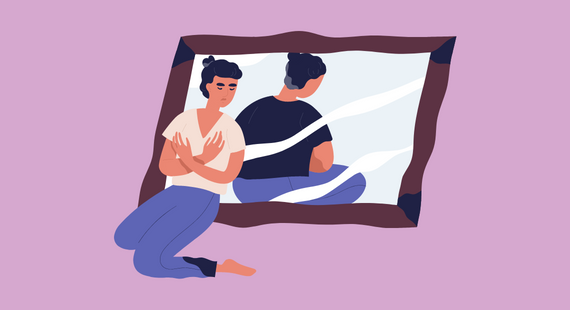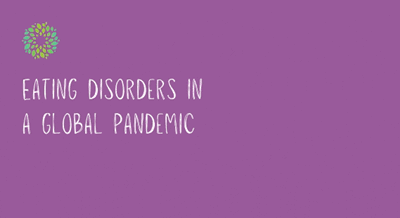
Eating disorders can have a significant impact on people's lives. We look at what we mean by eating disorders and the treatment and supports available.
"Anorexia", "bulimia" and "binge-eating" are clinical terms that have made their way into common usage. They can be casually thrown around as hyperbole and, in some ways, have come to represent a collective misunderstanding of what eating disorders are. The associated stereotypes can prove incredibly damaging, both in terms of minimising the experience of living with an eating disorder, and contributing to under-recognition among those of us living with behaviours that could be categorised as an eating disorder.
Eating disorders aren’t faddish lifestyle choices that largely affect teenage girls; they are illnesses with the potential to be extremely serious and hugely disruptive to a person’s life.
Although there are common risk factors, eating disorders can affect anyone across gender, age, ethnicity and socio-economic status.
The Department of Health and Children estimates that there are currently 200,000 people in Ireland affected by eating disorders and the fact is that the majority of them don’t fit into a neat diagnostic box of anorexia, bulimia or binge-eating.
Dr Clare O’Toole, Consultant Psychiatrist with responsibility for the Adult Eating Disorder Service at here at St Patrick’s Mental Health Services (SPMHS), shares her expertise about what characterises eating disorders, how they are treated and what supports are available.
What is an eating disorder?
An eating disorder is a serious mental illness characterised by abnormal eating patterns, excessive exercise and preoccupation with body shape or weight. It can take on different forms, such as anorexia or bulimia for example, but what distinguishes eating disorders from unusual eating habits is the frequency and severity of the symptoms, along with how enduring or persistent the symptoms are.
There are categories of eating disorders: anorexia nervosa, bulimia nervosa, binge-eating disorder or eating disorder unspecified. While there are distinct differences in these, they are typically characterised by abnormal eating patterns, fear of weight gain and body image concerns. Many people may struggle with eating disorder symptoms, yet not quite fulfil an eating disorder diagnosis and these individuals need help too.
What causes an eating disorder?
There is no single cause of an eating disorder.
Like most other mental health difficulties, there tends to be a combination of biological, psychological, social and environmental factors at play that come together to create the conditions where an eating disorder is more likely to develop.
Risk factors associated with these illnesses include dieting and low self-esteem. In fact, dieting is the single most important risk factor for developing an eating disorder. For example, girls who diet moderately are five times more likely to develop a disorder, whereas girls who diet severely are eighteen times more likely to develop a disorder than those who don’t diet at all.
Pre-disposing factors include:
- trauma
- bullying
- loss or grief
- critical comments about weight or shape.
Personality characteristics that can be associated with the development of an eating disorder include:
- anxiety
- perfectionism
- being obsessional
- hyper-sensitivity
- rigidity of thought.
Genetics are also important. Current research indicates that there are significant genetic contributions to the development of eating disorders; for instance, first degree relatives of people with anorexia nervosa are ten times more likely to develop the illness in their lifetime.
Are eating disorders all about food?
At its core, an eating disorder is a coping mechanism for someone in distress. Food – or the deprivation of food – becomes a means through which emotional distress or turmoil manifests itself. The disorder gives the person a mechanism through which they can alleviate, or ease, distress or achieve control, giving them certainty and safety in an otherwise unsafe world for them.
It’s understandable then that it can be very challenging and frightening for someone living with an eating disorder to let go of it.
What is consistent across all eating disorders is body dissatisfaction and, certainly, food can become the obsession, fuelled by the negative perception of one’s body.
What is the best way to support someone living with an eating disorder?
Educate
If you suspect or know that someone close to you has an eating disorder, it’s important to educate yourself on the condition using trusted sources. You can find more information about eating disorders here on our website. Bodywhys, the national organisation for eating disorders, also offers very good online resources and information on eating disorders and support options.
Support
In addition to improving your knowledge of the eating disorder, it is important to try and create a safe, supportive environment where the person feels comfortable and can talk about their experience. Avoid that being at the kitchen table, mealtimes or any space that might be associated with food and eating.
Be patient
Patience is key in supporting someone living with an eating disorder. It can be very challenging for them to remove a coping mechanism they’ve come to rely on, so it’s important to try to understand that and respect that it will take time. People recovering from eating disorders often describe the isolating nature of the condition, so it’s hugely helpful for them to feel supported.
Is recovery from an eating disorder possible?
The short answer is yes, recovery from eating disorders is possible. There is a range of treatment options available for people with eating disorders that vary depending on the stage and severity of their condition.
We do know that there can be an under-recognition of eating disorders and people can live with them for long periods without seeking intervention or getting a diagnosis. The best outcomes are for people who receive a diagnosis within three years of the onset of the illness, but even those who carry an eating disorder for a long time before they receive treatment, can achieve good outcomes.
If you think that you – or someone close to you – may have an eating disorder, look up information from trusted sources, then have a conversation with your GP who can help to direct you to a service and start a plan if necessary.
Tags: eating disorders Bulimia nervosa Anorexia nervosa Binge eating Eating disorder unspecified





